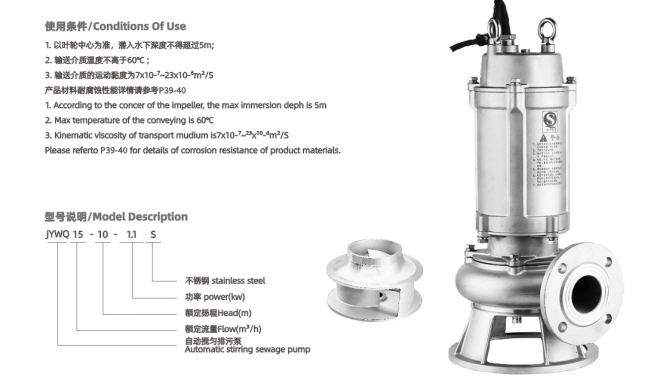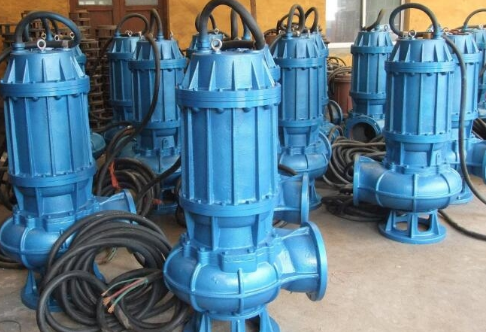How to choose a sewage pump
Purchasing a sewage pump requires careful consideration to ensure efficient and reliable operation. Here are nine key factors to evaluate when choosing a sewage pump:
Flow Rate: The flow rate indicates the amount of water the pump can discharge per hour. Choose one that matches your specific needs, such as 5-10 m³/h for a standard home setup with minimal plumbing. Larger homes or those with additional appliances like washing machines might need a pump with higher flow rates. Installing a dual-pump system can also be beneficial in certain situations.
Height Lift (Head): This refers to the maximum height the pump can lift wastewater. Higher doesn't always mean better; it depends on your specific floor layout and potential losses due to piping. Ensure that the actual height of lift still allows for sufficient flow to meet your requirements without compromising efficiency.
Diameter of Passage: This is the largest size of debris the pump can handle. For most household applications, a passage diameter of around 10mm should suffice. If connecting to a toilet, consider a model with a larger minimum diameter to prevent blockages, either a vortex type or a cutting type sewage pump.

Safety Rating: Look for pumps with higher IP ratings (e.g., IP54 or IP68) for better protection against dust and water ingress, enhancing safety and durability.
Casing Material: Casing materials vary, with ABS providing the highest resistance to corrosion, HDPE suitable for large tanks, and stainless steel prone to leaks due to thin material and welds that can crack under vibration.
Heat Dissipation: Given the high-speed operation, heat dissipation is crucial. Inspect the materials used in the motor and housing, preferring external-mounted pumps from reputable brands, which typically have better heat management compared to those submerged and cooled by water.
Starting Control: Options include liquid level control or air control. For residential use, an air control system avoids issues like float ball entanglement or malfunction, ensuring more precise operation. Commercial setups often benefit from liquid level control for handling solid content like waste from toilets.
Ease of Maintenance: Opt for pumps that are easy to disassemble and clean, ideally those with built-in cleaning features. This ensures hassle-free maintenance, preventing clogs and unpleasant odors in the event of a malfunction.

By considering these factors, you can select a sewage pump that meets your specific needs, whether for residential or commercial purposes, ensuring efficient drainage and waste management.




